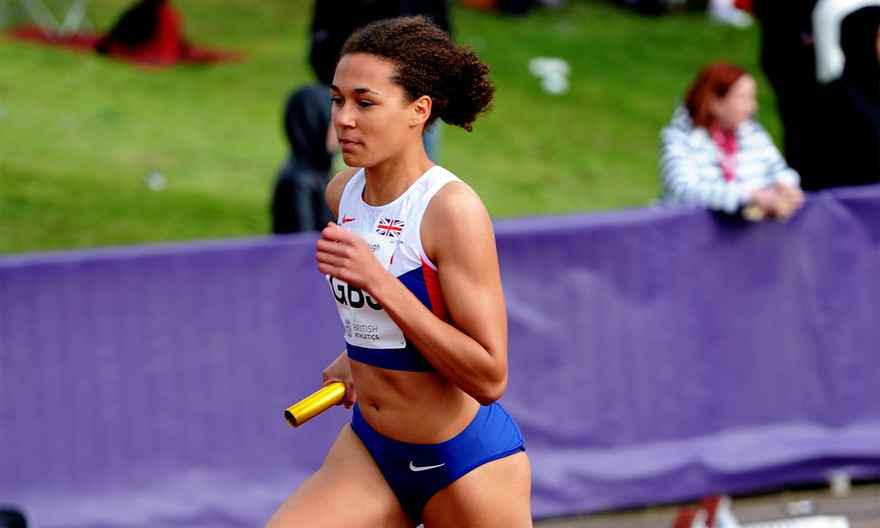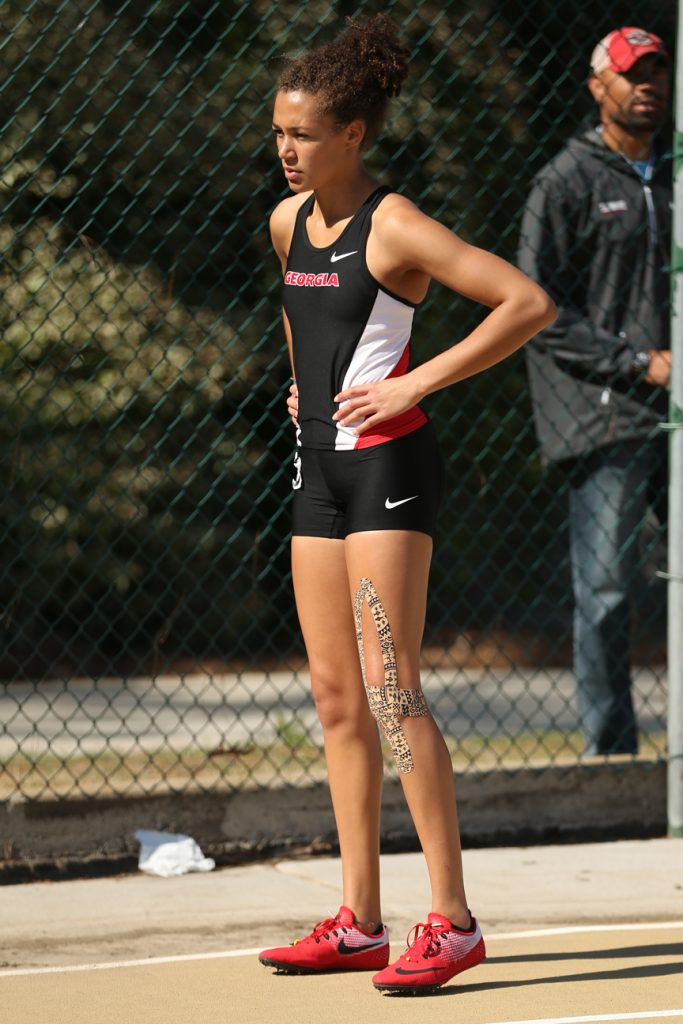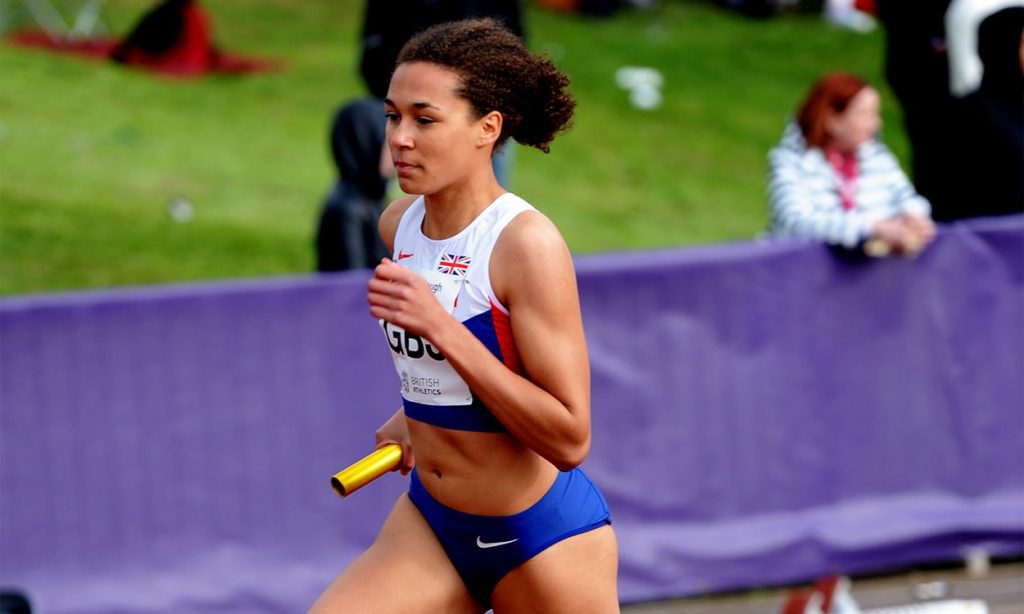
📸 by Jodi Hanagan
The NCAA experience is one that differs from person to person. You should never take one person's time in America as gospel, as you can guarantee you’ll find something differs in your time there. It is all dependent on your school, your coach, your degree, and obviously, yourself.
My time in the USA was one with many ups, a lot more downs, but an experience I wouldn't change for the world.

University of Georgia, Division 1 NCAA
The Ups
The main positive I would take from it, was how much it forced me to grow as a person. There is nothing like packing up your life and moving across the world to prompt real change in yourself, and for me, it was certainly changed for the better. Moving from a tiny village with a population of 3,000 people on a tiny island of 85,000 to an hour outside of Atlanta, Georgia was possibly the biggest culture shock I could have signed up for, and I loved it.
The facilities are incredible. Never in my wildest dreams could I have imagined what was to become my normal day to day life. Physiotherapists, masseuses, psychologists - anyone you might possibly need is on call for you at any point of the day. Unlimited treatment, access to the nutrition room (a room full of snacks for between classes and practice), and anything else I might have needed. It was all there. I remember a teammate of mine snapped this achilles in our 10:45am practice, and I’m pretty sure he was in surgery less than two hours later. Literally, whatever you might possibly need, they will get it done for you in a snap of their fingers. If you’re at a D1 school, they have all the money in the world for their sports teams, and you'll get whatever you require. I left college in December 2017, and up until November 2020, I had not needed to buy a single piece of training kit or clothing - that’s how much they give you!
Training - it’s tough, it’s gruelling, but on God, it will make you fit, fast and unstoppable (providing your body can keep up with the demands). I have kept every single workout from my final year at UGA handy, and when I look back on those sessions I can really see how, if you can make it through those workouts, you’d have the potential to become unmatched in your field.
If you make it through the training and manage to get through to competitions, be prepared to be amazed. Never in my life have I seen such a continuous level of high standard competition than what I saw in the USA. The joke is often thrown around about comparing NCAA’s to BUCS, but they really are two completely separate worlds. In the 2017 NCAA Outdoor Championships - 45.72s was good enough for EIGHTH place in the men's 400m final… The competition is absolutely outstanding, and enough to inspire world-class mindset and performance within a young athlete. A representative from British Athletics (I cannot for the life of me remember who it was) spoke at a British Athletics Supporters Club Annual Awards event that I attend in 2015, and said that one thing BA wish they could do for the youth and junior ages groups is to expose them to high-level competition on a regular basis, so that youngsters are not phased or anxious when it comes to moving up to major or global championships. The closest I have seen to what BA wishes for are the competitions in America. In season - every other week, you are potentially up against some of, if not, the best in the whole of the USA collegiate system. Seriousness, composure, and top performance are required from you on a bi-weekly basis, then when it comes to championship season, you have to step up your game again. I felt like a professional athlete there, which is something I don’t think I could have replicated at that time of my life in the UK.
And of course, let’s not forget that you are at college! Classes are a huge part of collegiate life. But, take comfort in the fact that you are going to get all the help you might need. In my experience - before the start of the semester, I would get given a piece of paper with all my practice times for the week on there - track, weights and physio. I would then go to my assigned academic advisor's office, and sit with him for around an hour, while he looked at the main classes I would need to be in (to qualify for my major), and he would ensure he placed me in those classes at times that didn’t clash with practice. Then he would recommend other classes for me to take, that would again, not clash with practice, but also assist in helping with shaping my major. All the leg work and organisation was done for me, I simply had to say yes or no to classes and times. If I knew Tuesdays and Thursdays were hard workout days, I wouldn't sign up for an 8am class to ensure I had enough sleep and recovery time to prepare for that workout. That’s about as much as I was required to think while selecting my classes.
During the semester, I had access to personal tutors for any class in which I believed I required a tutor. I took them for nearly all my classes, as I knew I needed all the help I could get (not being particularly academically minded, and I was also still getting used to the American grading and marking system). These tutoring sessions involved 50 minutes sessions, either twice or three a week in the evenings, where you could go over content, do homework, or finish assignments with your personal tutor. Some sessions were one-to-one, and my biggest session was with three other student-athletes. They were very intimate, helpful and honestly, the reason I managed to pass so many of my classes.
 Loughborough International by Mark Shearman
Loughborough International by Mark Shearman
The Downs
Be careful with injuries. In my experience, they only wanted a quick fix for my injuries, when the underlying issue was actually extremely severe. Months went by of promises that the next round of treatment would be the fix to all my problems, only to be left disappointed, still injured, and so much precious time and motivation lost. When I did end up returning home and going to a knee specialist in London, he told me there was no way that my school could have given me all the MRI’s, X-Rays and treatment that they did without noticing what my knee problem was. He concluded they had obviously given up with me, and given that the extent of my injury was so severe, they probably didn’t want to have to face the repercussions and rehab time. At the end of the day, you're just a number in the system. If you’re not working out for them, they’ve got a line of people ready and waiting to replace you, who are just as talented as you are. It doesn’t matter to them who runs that time or wins that championship, just as long as someone from your school does it. They don’t care if it’s you, or the person standing next to you.
Be careful with competitions and training, as they will run you into the ground. They aren’t like coaches in the UK who are all volunteers and are doing it for their sheer love for the sport. They are paid staff, who have targets to meet and high paying jobs to lose if they don’t meet said targets. If you don’t perform well, you will feel the brunt of it in some capacity, as it’s not just a reflection on you as an athlete, but as them as a coach. Hence why there is the pressure to train well 100% of the time, and run at every meet. If you’re injury prone, this won’t bode well for you. I learnt this the hard way.
Do not move to the states for one particular person, whether it be a coach or a teammate. I made this mistake. I moved for one particular coach, who I absolutely believed in and trusted, only to find him assigned to the men's sprints team a year later. I was left with a coach who simply didn’t understand me or work for me, which led to the hastening of my departure from the states. Coaches, teammates, physios, whoever, can move or transfer at the drop of a hat, despite what they might tell you during the recruiting stages. I was assured that my coach was going to be with me for my full four year spell at college, and I only had the pleasure of working with him for a single year.
Remember, you are far away from home. Consider your personal health, mental health and anything else you may need to. When I was struggling, I was met with physical distance from all my loved ones, as well as a five hour time difference. Communication was tough, which only led to me feeling even more lonely and isolated.
I was promised many things that never came to fruition - time to come home at Easter, a month at home for Christmas, but when it came to it, they said this wasn’t allowed or permitted. Anything you want (holiday times, flights home for holidays, etc) get it written in your contract so they cannot go back on their word. My Norwegian roommate was smart with this, and managed to get lots of benefits. I wish I had this knowledge before.
Finally, be prepared for the unexpected. The coaches and scouts that reach out to you are SALESPEOPLE. They know exactly what to say and how to bring you in. For example, when I was being recruited, I expressed how much of a family orientated person I was. The coaches picked up on this, and on my visit, the team was made out to give a ‘family’ vibe. They hosted a game night and said they did this often, which was very appealing to me. I later learned that this was all orchestrated by the staff, as they knew it would appeal to my nature. Be wary of situations like this, as they really are not uncommon.
Conclusion
I would always suggest people try America. Yes, my story is more of a horror story than anything else, but there have been so many success stories to come out of the states. Like I said, not one person's time is gospel. There are even small successes in my story, though they are not athletically centred.
My most significant piece of advice would be to always remember to put yourself first. Not your team, not your coaches, not anyone but yourself. Your happiness comes first. It is very easy to lose this as a priority when you are out there, as most of your time is going to be spent around your teammates. Trust me, when you are straining through workouts every day with some of your closest friends, you will want nothing more than to do them justice by getting on a start line, or scoring points at championships, but if you are not happy, that stuff is simply unimportant. You come first. Always.
If you go there, do well and accomplish all your athletic dreams and more, then you are a very lucky individual. However, there is no shame in admitting it didn’t work. I went through that very tough realisation. I was handed everything I could have ever wanted as an 18-year-old aspiring Olympian. I tried it, tested it, and realised how unhappy the environment was making me, and how damaging it not only was to my physical health, but my mental health too. I had it all, and then I made the heart-wrenching decision to give it all back, and leave. Although, looking back now I can see it was one of the best decisions I ever made in my life, and perhaps one of the decisions I am most proud of. People's expectations didn’t matter to me at that point, only I mattered. I would implore any young athlete thinking of moving to the states to remember the simple message - that you and your feelings come first. Be true to that, and your time in the USA will be a time to remember.
The American Dream - A Bed Of Roses, Or A Mass Of Thorns.
Written by Catherine Reid
If you would like to collaborate, get in touch here, on socials, or at info@theathleteplace.com.


Comments